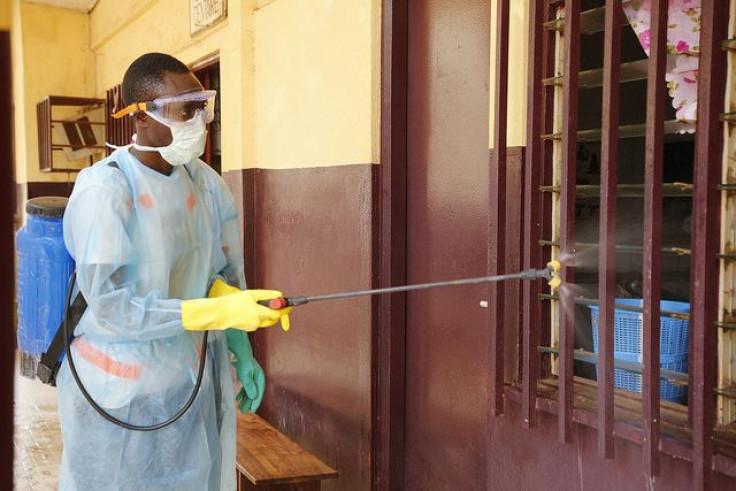Ebola Outbreak Update: WHO Debates Public Health Emergency As Patient In Spain Makes Fourth Continent With Virus

Ebola patients are believed to now have been treated in four of the seven continents following a priest's arrival in Spain Thursday morning. The Centers for Disease Control and Prevention raised its alert to the highest level and has also increased its efforts to contain the massive outbreak before it can be officially labeled as a global health threat.
Miguel Pajares became the first Ebola patient to arrive in Europe this morning after the Spanish government flew the 75-year-old Roman Catholic priest to an undisclosed hospital in Madrid for treatment. The missionary worker was working in Liberia treating Ebola patients when he contracted the virus, NBC News reported.
Earlier this week, two U.S. missionary health workers were flown to Atlanta, Ga., for treatment and a suspected Ebola patient in Saudi Arabia died yesterday, the BBC reported. Combined with the more than thousand African Ebola cases, currently over half of the world’s continents are believed to have treated patients ill with the deadly hemorrhagic fever.
In response to the longest and most deadly Ebola outbreak in world history, the CDC raised its alert level to Level 1. The Level 1 alert is saved for the most serious public health emergencies and allows the agency to relocate hundreds of employees working on different projects to refocus their efforts on Ebola containment.
Similar moves were made during the 2005 Hurricane Katrina aftermath and the 2009 bird flu threat, NBC News reported. “This raising of the level is to get people and supplies into the infected areas. … [The CDC] has pulled people off of other teams and said Ebola is now your job. You can put influenza on the backburner for right now,” NBC News reported in the Today show segment.
This morning the World Health Organization (WHO) held an emergency meeting in Geneva to discuss whether or not the Ebola outbreak now qualifies as a public health emergency, The New York Times reported. Experts will continue to discuss the issue for a few days before arriving at a conclusion. The organization also released updated figures of Ebola numbers, reporting a total of 1,711 cases and 932 deaths.
At the same meeting, the WHO announced that it would arrange a panel of medical ethicists to explore the use of experimental Ebola treatment to quell the number of fatalities. “We are in an unusual situation in this outbreak,” Dr. Marie-Paule Kieny, the WHO's assistant director general, explained. “We need to ask the medical ethicists to give us guidance on what the responsible thing to do is.”
In the African country of Liberia, one of the hardest hit areas in Africa, President Ellen Johnson Sirleaf has declared a state of emergency. This means that certain civil rights will be momentarily suspended and the government will be issuing mandated quarantines in order to best contain the epidemic. Similar measures have been taken in Sierra Leone, with the government deploying security forces to “establish a complete blockade” of two of the hardest hit districts.” No vehicles or persons are allowed into or out of the districts," Alfred Karrow-Kamara told Reuters, saying the measures would last for an initial 50-day period.



























